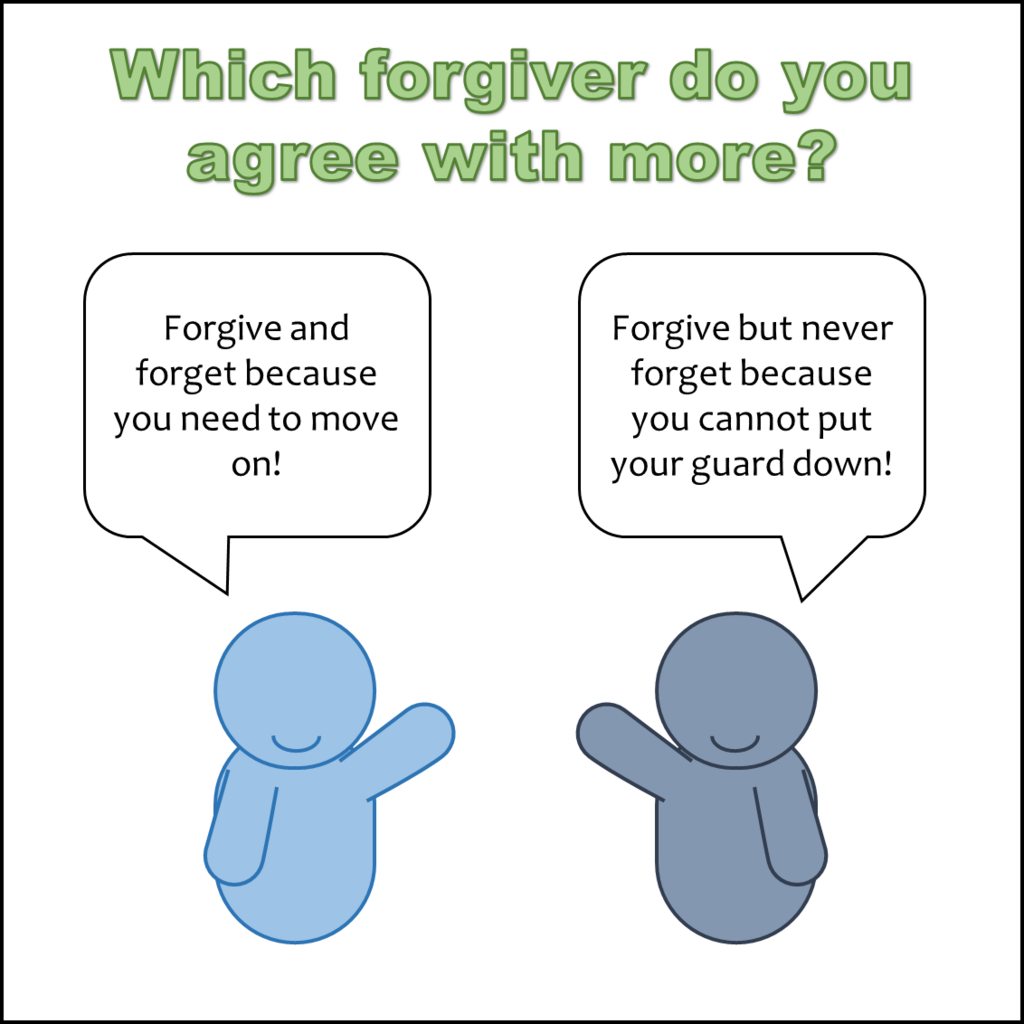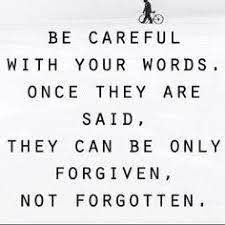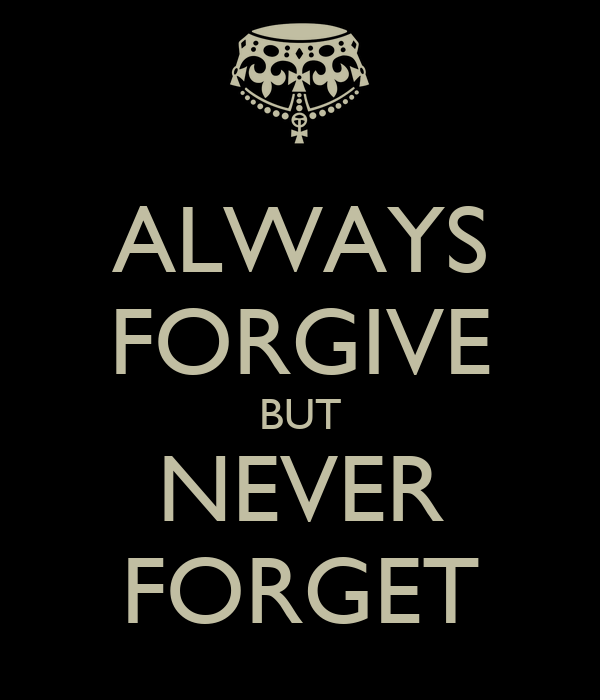In the world of psychology, there is a term called “forgive but not forget.” It means that you forgive someone for what they did to hurt you in the past, but will never repeat it. This can be applied in many different scenarios, including forgiving yourself for mistakes made and forgiving by others. In this article, we discuss forgiveness and how it can benefit your mental health. We will also discuss the forgive and forgettest to help you estimate your ability to learn from the past and move forward
Contents
- 1 Understanding Forgive But Not Forget
- 2 Decoding Forgive But Not Forget Test
- 3 Questions To Ask Me Before Forgive But Not Forget Test
- 4 The Procedure Of Forgive But Not Forget Test
- 5 Result And Interpretations
- 6 Handling Results
- 7 Forgive But Not Forget FAQs
- 7.1 Q: I have forgiven those who have hurt me in the past, but I will never forget what they did. Is this wrong?
- 7.2 Q: Can I forgive someone if they don’t ask for my forgiveness?
- 7.3 Q: I find it difficult to forgive people who have hurt me in the past. What can I do?
- 7.4 Q: What if I can’t seem to forget what happened?
- 7.5 Q: What if I don’t feel like forgiving someone?
- 8 Talking To a Professional
- 9 Experts’ View On Forgive And Forget
- 10 Conclusion
- 11 A Word From Therapy Mantra
Understanding Forgive But Not Forget

Forgive but not forget is a term that is often used when discussing psychological healing. It means that you have forgiven someone for what they did to hurt you. But you will never forget the pain that was caused. This can be applied in many different scenarios, including forgiving yourself for mistakes made and forgiving by others.
Reasons We Forgive But Not Forget
There are many reasons why we should forgive but not forget. Some of the key benefits include:
Improved mental health
When you harbor anger and resentment towards someone, it can take a toll on your mental health. Forgiveness allows you to let go of that anger and resentment, which can improve your mental health and make you feel less stressed
Improved physical health
Holding onto anger, resentment, or hatred can hurt your body. If you’re stuck in old pain, it’s hard to move forward with new experiences that could improve your life. Forgiveness allows us to let go of the past so we can focus our energy on the positive things that are happening to us.
Improved relationships with others
When we harbor resentment and anger towards someone, it’s hard to have a healthy relationship with him or her. Forgiveness allows you to move forward in your life without feeling stuck in the past. You can learn from what happened, but still, continue being friends or family members.
Peace of mind
Forgiving someone doesn’t mean that you have to forget what happened. It simply means that you are choosing to let go of the anger, hatred, and resentment. This can give you a sense of peace and inner calmness that comes with forgiveness.
Signs That You Forgive But Not Forget
There are many signs that you have forgiven but not forgotten. Some of the key signs include:
- You don’t feel as angry or resentful towards the person anymore
- You can talk about what happened without feeling upset
- You’re able to be around the person without feeling tense or anxious
- Your mood improves when you’re not thinking about what happened
Decoding Forgive But Not Forget Test

The forgive but not forget test is a tool that can help you estimate how forgiving you are. It measures your ability to learn from the past and move forward.
Reasons I Take Forgive But Not Forget Test
There are many reasons why you should take forgive but not forgettest. Some of the key reasons include:
- Help you understand how forgiving you are
- To help you identify any areas that may need improvement
- Help you learn more about the benefits of forgiveness
The Time I Take Forgive But Not Forget Test
There is no one answer to this question. Some people may find it helpful to take the test after a major life event, such as a breakup or divorce. Others may find it helpful to take the test regularly, such as every six months.
Rough Idea of Forgive But Not Forget Test
The forgive but not forget test is made up of 50 questions (or less/more) that ask you about different aspects of forgiveness. It can be taken online or on paper.
Accuracy of Forgive But Not Forget Test
The forgive but not forget test is nearly an accurate way to find out how forgiving you are.
Questions To Ask Me Before Forgive But Not Forget Test
There are some questions that you may want to ask yourself before taking the forgive but not forgettest. These questions include:
- Do I feel like I’m holding onto anger or resentment towards someone?
- If I were to talk about what happened, would it upset me?
- Can I be around this person without feeling tense or anxious?
The Procedure Of Forgive But Not Forget Test
Taking the forgive but not forget test should be relatively simple. All you need to do is answer as many of the questions honestly and accurately as possible. Some people may find it helpful to take notes while answering, so they can look back over them after finishing.
Sample Questions of Forgive But Not Forget Test
Below are some sample questions from the forgive but not forget the test.
- How easily do you forgive others?
- Do you think that forgiving someone is the same as forgetting what happened?
- Can you be friends or family members with the person who hurt you without forgiving them?
- If a loved one hurts you, how likely are you to forgive him or her?
- How long does it usually take for you to forgive someone?
- Can you think of a time when forgiving someone made you feel better?
- How does resentment or hatred make you feel?
- Do you believe that holding onto anger, resentment, or hatred is good for your physical health?
- If the person who hurt you apologized, would you be likely to forgive them?
- Would you say that you are a forgiving person?
- If the person who hurt you does not apologize, would you be likely to forgive them?
- Would you say that it is important for you to forgive others?
Result And Interpretations
How do you feel about your parents now (compared to how you felt in the past)?
I:
- Can accept my mistakes and learn from them
- Have forgiven those who have hurt me in the past, but I will never forget what they did
- Can talk about what happened without feeling upset or angry.
- Feel better when I am not thinking about what happened.
If you answered C, then you tend to forgive but not forget. This means that you can learn from the past and move forward, but you don’t forget what happened.
If you answered A or B, then you tend to forget but not forgive. This means that you may have a hard time moving on from the past, and may still feel anger or resentment towards those who have hurt you.
If you answered D, then you do not tend to forgive or forget. This means that you are likely still feeling angry or resentful towards those who have hurt you in the past.
Handling Results
After you have taken the test, it is important to not focus too much on your results. This means that if you answered D (no tendency) then don’t worry about taking any action towards forgiving or forgetting anyone for now.
If you answered A and B, this may mean that there are people in your life who need extra forgiveness from you. If you answered C, this means that you tend to forgive but not forget. This is something that you should be proud of, as it shows that you can learn from the past and move forward.
No matter what your results are, it is important to remember that forgiving someone does not mean forgetting what happened. Forgiving someone means that you are no longer holding onto anger, resentment, or hatred towards them. This can be difficult to do, but it is worth it in the end.
NOTE: Whether you answered with a tendency to forgive or forget, it is important for the overall well-being that you can both learn from the past and move forward.
Advice On Forgive But Not Forget Or Either Forget Or Forgive
If you tend to forgive but not forget or vice versa, then there are several steps that you can take to help you move on from the past.
If you tend to forget but not forgive, then you need to talk about what happened with a therapist or trusted friend. This will allow you to process the emotions that you are feeling, and may make it easier for you to move on in the future.
If you tend to forgive but not forget, then you need to process the emotions that are associated with what happened in your past. This can be done by either talking about the situation or writing down how you feel without worrying too much about grammar and spelling.
In general, trying a variety of methods can help both those who tend to forget and those who tend to forgive. This means that you should experiment with different techniques until you find something that works for you.
For example, some people may prefer writing in a journal, while others may benefit from talking about their past experiences with friends or family members. No matter what method you choose, it is important to be patient and allow yourself time to heal.
NOTE: It is also important to remember that forgiving someone does not mean that you have to be friends with them or even talk to them again.
Forgive But Not Forget FAQs
Q: I have forgiven those who have hurt me in the past, but I will never forget what they did. Is this wrong?
A: No, it is perfectly okay to forgive someone but not forget what they did. Forgiving but not forgetting can be very healthy for both you and the person you are forgiving.
Q: Can I forgive someone if they don’t ask for my forgiveness?
A: Yes, you can forgive someone even if they do not know that they have hurt you or wronged you in any way. This is because forgiving another person does not mean that the relationship between the two of you has to change; it just means that your negative emotions are no longer affecting what’s going on between you.
Q: I find it difficult to forgive people who have hurt me in the past. What can I do?
A: If you find it difficult to forgive someone, then you need to talk about your feelings with a therapist or friend. This will allow you to process the emotions that are preventing you from forgiving the person. Additionally, it is important to remember that forgiveness is a process, and you may not be able to forgive someone overnight.
Q: What if I can’t seem to forget what happened?
A: If you find yourself struggling to forget what happened in your past, then talking about it with a therapist or friend may be a good idea. This will allow you to express the emotions that you are feeling, and may make it easier for you to move on in the future. Additionally, there are several online support groups available that can help you deal with your past experiences.
Q: What if I don’t feel like forgiving someone?
A: If you don’t want to forgive someone for what they did in the past, then you must yourself about why you feel this way. Many people think of forgiveness as a good thing, so it may be difficult for them to admit that they don’t want to extend grace towards another person. However, if your feelings never change and you continue to harbor resentment and anger towards the person, then it may be healthier for you not to forgive them.
Talking To a Professional
If you’re finding that it’s difficult to cope with forgiving and forgetting, talking about your experiences with a therapist or counselor can be incredibly beneficial. They will help you understand why the situation is affecting you so much and may have some tips for moving on. Additionally, if you decide that you want to forgive someone but don’t know-how, they can help you through the process.
Experts’ View On Forgive And Forget
There is no right or wrong answer when it comes to forgiving and forgetting. What matters most is that you find a way to deal with the emotions that are associated with your past experiences. This may mean that you have to try different methods until you find something that works for you. No matter what, be patient and allow yourself time to heal.
Movies And Books On Forgive But Not Forget
If you’re looking for a good movie or book to help you understand the concept of forgiving but not forgetting, here are a few recommendations:
Movies: “The Help,” “Fences,” “Remember the Titans”
Books: “To Kill a Mockingbird,” “The Catcher in the Rye”
Conclusion

Forgiveness is a complicated process, but it can be very beneficial for both you and the person you are forgiving. It is important to remember that forgiving someone does not mean that you have to forget what they did; you can forgive them and still remember what happened.
Additionally, if you find it difficult to forgive someone or if you don’t want to forgive someone, you must be yourself about why you simply cannot. Lastly, if you find yourself struggling with forgiving and forgetting your past experiences as well as dealing with the emotions associated with them, then be sure to talk about it with a therapist or friend.
A Word From Therapy Mantra
Your mental health — Your psychological, emotional, and social well-being — has an impact on every aspect of your life. Positive mental health essentially allows you to effectively deal with life’s everyday challenges.
At TherapyMantra, we have a team of therapists who provide affordable online therapy to assist you with issues such as depression, anxiety, stress, workplace Issues, addiction, relationship, OCD, LGBTQ, and PTSD. You can book a free therapy or download our free Android or iOS app.


